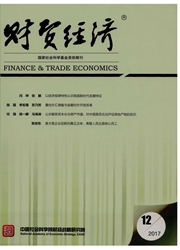

 中文摘要:
中文摘要:
本文利用2002—2008年省级面板数据,从国际生产网络视角分析了中国地区发展差距的形成原因。文章借助投入产出表测算了各省出口贸易的垂直专业化程度,并以此作为衡量各省融入国际生产网络的程度。实证研究结果显示,就全国整体而言,融入国际生产网络对中国经济增长有着明显的促进作用;分区域估计结果表明,国际生产网络对经济增长的促进作用在东部、中部、西部地区呈现出依次减弱的趋势。我们认为国际生产网络对经济增长的影响主要是通过分工和集聚这两种作用机制实现的。由于具备自我强化机制,使得因分工和集聚带来的规模经济容易发挥累积效应,而这可能会导致经济增长出现“马太效应”。
 英文摘要:
英文摘要:
This paper explores the impacts of international production networks on regional disparity with provincial panel data of China from 2002 to 2008. It argues that joining into international production networks plays a significant positive role on economic growth in China. The sub-regional study shows that this impacts are gradually weaker from eastern regions to central and western regions of China. In addition, the authors believe that the main mechanism between international production network and regional disparity are specialization and agglomeration. With their self-reinforcing mechanism, specialization and agglomeration tends to bring about cumulative effect of scale economies, which may lead to "matthew effect" in economic growth.
 同期刊论文项目
同期刊论文项目
 同项目期刊论文
同项目期刊论文
 期刊信息
期刊信息
